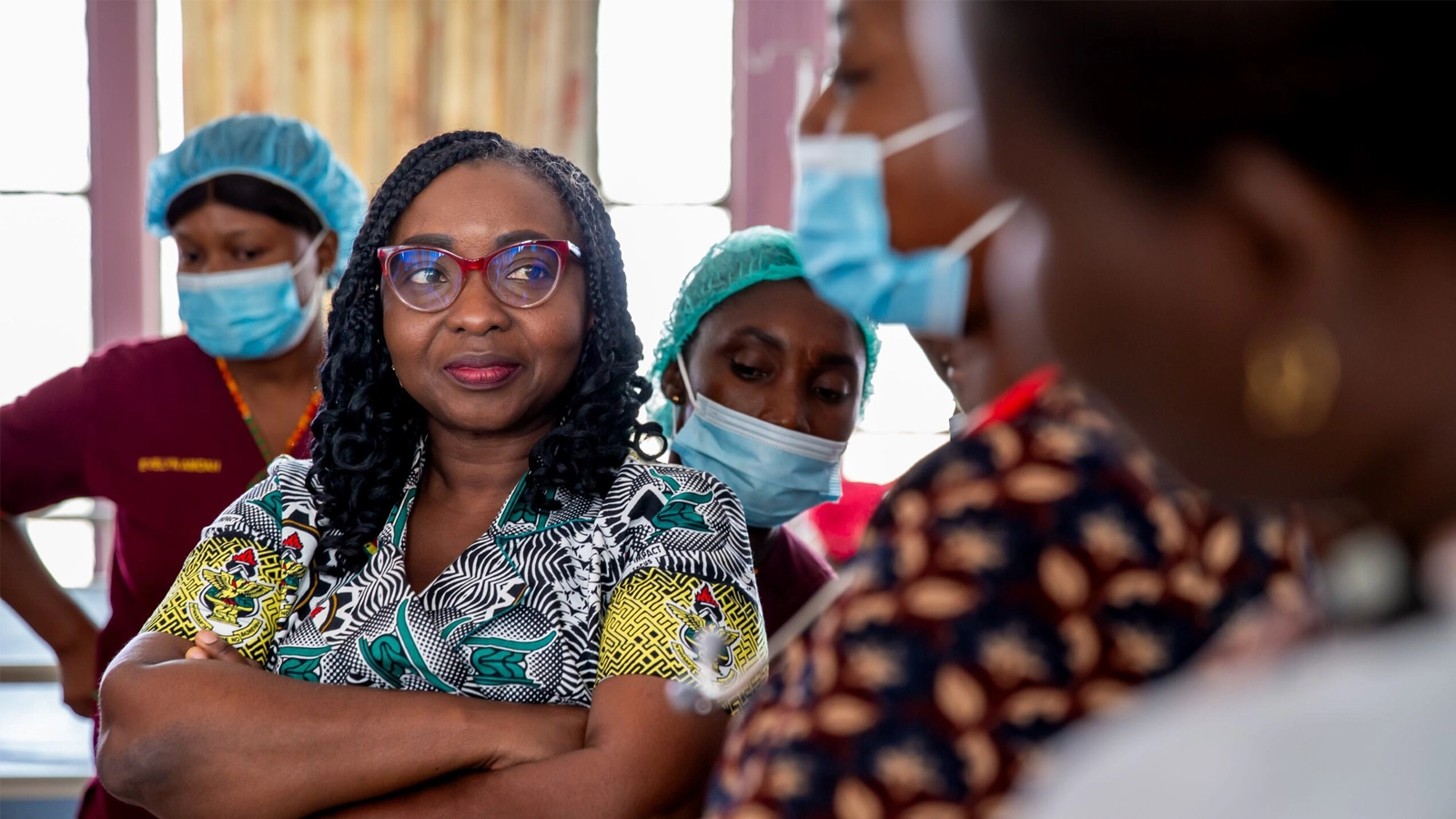
Photo credit: Sala Lewis/Pfizer Inc.
We believe that where you live shouldn’t impact the quality of your healthcare, and your income shouldn’t determine your health outcomes. Accord for a Healthier World aims to help close the health equity gap and is part of Pfizer’s comprehensive approach to expand access to medicines and quality healthcare for all people. Through the Accord, Pfizer is offering the full portfolio of medicines and vaccines for which it has global rights on a not-for-profit basis to 1.2 billion people living in 45 lower-income countries around the world.
To make sure these medicines reach those in need and support long-term, sustainable impact, we are working together with governments, the global health community and others who share our commitment to advancing health equity, to understand and better address system-level barriers that can limit or prevent patient access.
Since its launch in May 2022, the Accord has been taking important steps to help enable greater access to healthcare. Learn more about our journey.

